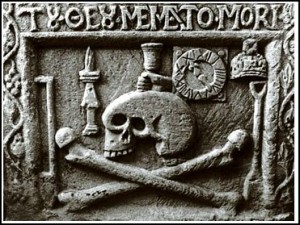I don’t think it’s going to make a whole lot of difference after death what we do with the human remains. Death is found for the first time in Genesis chapter 3 and God said, “Dust thou art and unto dust thou shalt return.” He was of course addressing the physical bodies only. 2 Corinthians 5:1 tells us that when “the  tent that is our earthly home” (our bodies) are destroyed; we have an eternal home made by God. God will not lose anyone! Even those who have been devoured by fire, lions, tiger, bears or sharks. Revelation 20:13 tells us “And the sea will give up the dead who were in it.”
tent that is our earthly home” (our bodies) are destroyed; we have an eternal home made by God. God will not lose anyone! Even those who have been devoured by fire, lions, tiger, bears or sharks. Revelation 20:13 tells us “And the sea will give up the dead who were in it.”
The official position of the Jews today, according to the Encyclopedia of Judaism, is this: Reverent treatment of the body and speedy interment are biblically-ordained precepts. Cremation, freeze-storage of the body, and above-ground burial crypts, are all in violation of Jewish law and practice.” Yet, I might argue that there were several possible cases of cremation in the old Testament. Saul’s body and the bodies of his son’s were taken from the walls at Beth Shan and cremated. According to 2 Chronicles 16:13-14, it appears King Asa might also have been cremated. We read there, “They laid him on a bier that had been filled with various kinds of spices prepared by the perfumer’s art, and they made a very great fire in his honor.” Many argue that this is not reference to cremation but it sounds like it and it puts cremation in a positive light. Embalming is a requirement of the law today, I believe, and every corpse handled by a funeral parlor is necessarily injected with preservatives. I agree with J. Vernon McGee on this. He says, “I think the undertakers like to include it, whether it is required or not. …But if it has to be done, that settles the question.”
I would personally not choose to be cremated because of the figures of speech that are used in the Bible regarding the disposition of the remains of those that have died. One figure is that of “sleep.” According to 1 Thessalonians 4:13f, the body of a believer is put into a sleeping place (the word cemetery comes from this word), to be awaken and raised at the coming of the Lord. The other picture is that of 1 Corinthians where like a seed, the body is planted, and then brought back to life with incorruptible characteristics. Yet, the bible makes it clear that no matter what condition the body is in at the Lord’s return, its resurrection is assured.
Chuck
“So is it with the resurrection of the dead. What is sown is perishable; what is raised is imperishable.” 1 Corinthians 15:42